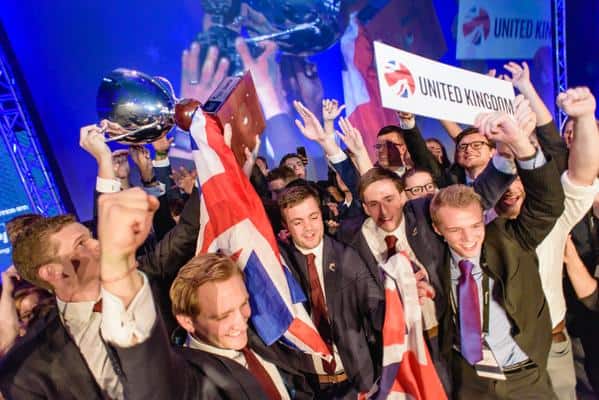After being named UK winners earlier in the year, the team recently travelled to South Africa for the global finals. Its presentation focused on two Kenyan projects the team had set up: San Eco, which provides reusable sanitary towels, soap and composting toilets to poor communities; and Right Light, which helps people move away from using dangerous kerosene lamps through solar lamp renting schemes.

“The team and I came to the World Cup with the intention of showing the world what our team has done,” said 22 year old Josh Hasdell, Southampton’s Enactus team leader.
“We never thought we would come away with 4,000 new friends and be crowned the world champions! I’m very humbled and proud to have been able to lead the team through this unique experience.”
SanEco was formed in Kisii in Kenya three years ago. The team found that female education was being adversely affected by a lack of sanitary towels, with girls choosing to remain at home rather than risk an accident when on their period. The reusable towels it developed, along with a soap made from fruit waste and an eco-friendly toilet system, are improving sanitary conditions across Kenya, and empowering more young women to learn.
With Right Light, the idea was to mitigate against the fire and respiratory risks of kerosene lamps, which kill over 4,000 children per year in Kenya. The micro-finance programme sets up local entrepreneurs with loans to buy rechargeable solar lamps, which are rented out for 7p a night. Loans are repaid at 25 per cent of monthly profits.
Showcasing these two projects, the University of Southampton beat off competition from 35 other countries to claim the world title. Over the past year, its 200-strong Enactus team has developed 14 different projects, and it hopes to impact 360,000 people as part of its 2020 vision.




April 1886: the Brunkebergs tunnel
First ever example of a ground source heat pump?